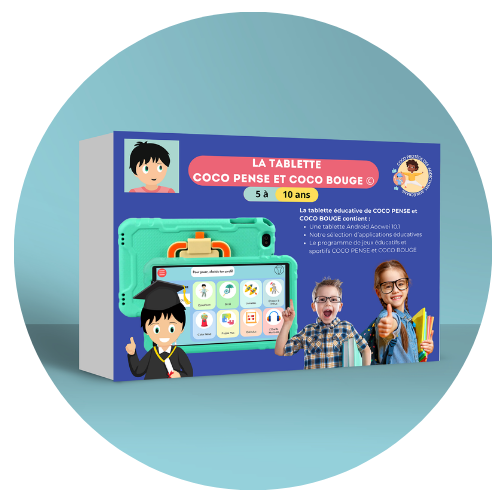Attention Deficit Hyperactivity Disorder (ADHD) is a neurodevelopmental disorder that affects millions of children worldwide. It is characterized by symptoms such as inattention, hyperactivity, and impulsivity, which can significantly impact a child’s ability to communicate effectively. For many children with ADHD, speech therapy becomes an essential component of their development, helping them to improve their language skills, social communication, and overall cognitive functioning.
Speech therapists often employ various techniques and tools to engage children, making the process enjoyable and effective. However, traditional methods may not always resonate with children who have ADHD, necessitating innovative approaches that cater to their unique needs. In our quest to support children with ADHD, we recognize that speech therapy must be tailored to each child’s individual challenges.
Many children with ADHD struggle with maintaining focus during therapy sessions, which can hinder their progress. This is where the integration of technology, particularly cognitive apps, comes into play. By utilizing engaging and interactive applications designed specifically for children with ADHD, we can create a more stimulating environment that captures their attention and encourages participation.
These apps not only provide a fun way to practice speech and language skills but also help children develop essential cognitive abilities that are often affected by ADHD.
The Benefits of Cognitive Apps in Speech Therapy for Children with ADHD
Enhancing Speech Therapy with Cognitive Apps
Cognitive apps offer numerous benefits for children undergoing speech therapy, particularly those diagnosed with ADHD. One of the most significant advantages is the ability to provide immediate feedback. Unlike traditional methods where a therapist may take time to assess a child’s performance, cognitive apps can instantly inform children about their progress.
Motivating Children with ADHD through Instant Feedback
This immediate reinforcement can be incredibly motivating for children with ADHD, who often thrive on instant gratification. By receiving real-time feedback, they can adjust their efforts accordingly, leading to a more effective learning experience. Moreover, cognitive apps are designed to be interactive and engaging, which is crucial for maintaining the attention of children with ADHD.
Engaging and Interactive Learning Experiences
These applications often incorporate gamification elements, such as rewards and challenges, that make learning feel like play rather than a chore. This playful approach can significantly reduce anxiety and resistance to learning, allowing children to focus on improving their speech and language skills without the pressure often associated with traditional therapy settings.
Empowering Children to Take Charge of Their Learning
As we explore the benefits of cognitive apps further, it becomes clear that they not only enhance the therapeutic experience but also empower children to take charge of their learning journey.
How Cognitive Apps Address Specific Challenges of ADHD

Children with ADHD often face significant challenges when it comes to communication and concentration. Common difficulties, such as sustaining attention, following instructions, and organizing thoughts, can impede progress in therapy sessions. Cognitive apps have been designed to specifically target these challenges, providing valuable support for children with ADHD in their speech development. Below are some ways these apps help address ADHD-related difficulties:
1. Short, Focused Activities to Maintain Attention
Children with ADHD often struggle to stay engaged in tasks for long periods, which can be especially difficult in therapy settings. Cognitive apps address this by offering short, focused activities that require minimal time commitment.
- Bite-Sized Tasks: These short tasks are designed to hold the child’s attention without overwhelming them, allowing for frequent breaks and gradual engagement.
- Task Variety: By offering different types of tasks in quick succession, cognitive apps prevent boredom and help children stay engaged by providing a fresh challenge every few minutes.
2. Visual and Auditory Stimuli to Capture Attention
Children with ADHD tend to respond better to engaging sensory stimuli. Cognitive apps often include vibrant visual elements, sounds, and interactive features to capture their interest.
- Interactive Visuals: Colorful graphics, animations, and visual cues stimulate the child’s visual senses, making tasks more engaging and less likely to lose their attention.
- Auditory Cues: Sound effects, spoken instructions, and voice-guided activities provide auditory engagement, which can help reinforce instructions and make learning more dynamic.
3. Customization to Suit Individual Needs
One of the key strengths of cognitive apps is their ability to be tailored to the unique needs of each child. Children with ADHD often have varying preferences and challenges that can impact their learning process.
- Adjustable Difficulty: Many apps allow therapists or parents to adjust the difficulty level, ensuring that tasks are challenging but not overwhelming. This flexibility allows children to experience success and gradually progress without becoming frustrated.
- Personalized Learning: Customizable settings allow activities to focus on specific communication goals, such as vocabulary development, sentence structure, or articulation practice, which helps keep therapy aligned with the child’s individual needs.
4. Immediate Feedback to Encourage Progress
Children with ADHD benefit from instant feedback to reinforce positive behavior and correct mistakes in real-time. Cognitive apps often incorporate systems that provide immediate responses to the child’s actions.
- Positive Reinforcement: When children complete tasks correctly, the app offers positive reinforcement, such as rewards, sounds, or visual cues, which helps maintain motivation and encourages persistence.
- Guidance and Correction: If mistakes are made, the app provides clear, gentle guidance, helping children learn from errors and continue progressing without feeling discouraged.
5. Creating an Engaging and Immersive Experience
Cognitive apps use gamification techniques to make therapy feel like play, rather than work. This approach can significantly increase engagement for children with ADHD, who may be prone to boredom in traditional therapy settings.
- Game Elements: Points, levels, and challenges are integrated into tasks, transforming therapy into a fun and rewarding experience.
- Interactive Learning: Many apps incorporate storylines or character-driven narratives, which help children feel connected to the tasks and encourage them to actively participate.
6. Tracking and Monitoring Progress
Regular tracking of progress is important to ensure that the child’s needs are being met. Many cognitive apps provide features that allow therapists and parents to monitor progress over time.
- Engagement Metrics: The app tracks how often the child engages with the tasks, how long they stay focused, and how well they perform, providing valuable insights into their development.
- Reports for Adjustment: Based on progress reports, therapists can make informed decisions about whether to adjust the level of difficulty or introduce new tasks, ensuring the therapy remains appropriate for the child’s evolving needs.
Choosing the Right Cognitive Apps for Speech Therapy
Selecting the appropriate cognitive apps for speech therapy requires careful consideration of several factors. First and foremost, we must evaluate the specific needs of each child. Different apps may target various aspects of speech and language development, such as vocabulary building, articulation practice, or social communication skills.
By understanding the individual challenges faced by each child with ADHD, we can choose apps that align with their therapeutic goals and provide the most benefit. Another critical aspect to consider is the app’s user interface and design. Children with ADHD often respond better to visually appealing and intuitive applications that are easy to navigate.
We should look for apps that incorporate bright colors, engaging animations, and clear instructions to facilitate a positive user experience. Additionally, it is essential to ensure that the app provides opportunities for progress tracking and feedback, allowing both therapists and parents to monitor improvements over time. By carefully selecting cognitive apps that meet these criteria, we can enhance the effectiveness of speech therapy for children with ADHD.
Incorporating Cognitive Apps into Speech Therapy Sessions
Integrating cognitive apps into speech therapy sessions requires thoughtful planning and execution. As therapists, we must strike a balance between traditional therapeutic techniques and the use of technology to create a cohesive learning experience. One effective approach is to begin each session with a brief review of previously learned skills before introducing the app-based activities.
This strategy helps reinforce prior knowledge while setting the stage for new learning opportunities. During therapy sessions, we can utilize cognitive apps as a supplement to hands-on activities or verbal exercises. For instance, after practicing articulation through traditional methods, we might transition to an app that focuses on similar sounds or words in an interactive format.
This seamless integration allows us to maintain engagement while reinforcing key concepts in a dynamic way. Additionally, we should encourage children to express their thoughts and feelings about the app activities, fostering open communication and providing valuable insights into their preferences and motivations.
Monitoring Progress and Adjusting Cognitive App Usage

Monitoring progress is a vital component of any therapeutic intervention, especially when incorporating cognitive apps into speech therapy for children with ADHD. As therapists, we must regularly assess each child’s performance within the app to identify areas of strength and areas needing improvement. Many cognitive apps come equipped with built-in analytics that track progress over time, providing valuable data on skill development and engagement levels.
By analyzing this information, we can make informed decisions about adjusting app usage to better meet each child’s evolving needs. In addition to tracking progress through app analytics, we should also engage in ongoing communication with parents and caregivers about their child’s experiences with the app. Gathering feedback from families can provide us with insights into how well the app aligns with the child’s interests and whether it effectively addresses their specific challenges.
If we notice that a particular app is not yielding the desired results or if a child seems disengaged, we can explore alternative options or modify our approach to ensure continued progress in speech therapy.
The Role of Parents and Caregivers in Supporting Speech Therapy with Cognitive Apps
Parents and caregivers play an integral role in supporting speech therapy for children with ADHD when cognitive apps are involved. Their involvement can significantly enhance the effectiveness of therapy by reinforcing skills learned during sessions at home. We encourage parents to engage with their children while using these apps, creating opportunities for shared learning experiences that foster communication and bonding.
By participating in app-based activities together, parents can help reinforce concepts introduced during therapy sessions while also providing encouragement and motivation. Furthermore, parents can assist in monitoring their child’s progress by regularly checking in on app usage and discussing achievements or challenges encountered during gameplay. This collaborative approach not only empowers parents but also helps them feel more connected to their child’s therapeutic journey.
We believe that when parents are actively involved in supporting speech therapy through cognitive apps, it creates a more holistic environment conducive to growth and development.
Future Developments and Research in Cognitive Apps for Speech Therapy
As technology continues to evolve at an unprecedented pace, we anticipate exciting developments in cognitive apps designed for speech therapy in children with ADHD. Ongoing research into the effectiveness of these applications will likely lead to enhanced features that cater specifically to the needs of this population. For instance, future apps may incorporate artificial intelligence algorithms that adapt activities based on real-time performance data, providing personalized learning experiences tailored to each child’s unique challenges.
Moreover, as we gain a deeper understanding of how ADHD affects communication skills, we expect new evidence-based practices will emerge that inform app development. Collaborations between researchers, speech therapists, and app developers will be crucial in creating tools that not only engage children but also deliver measurable outcomes in speech therapy interventions. As we look ahead, we remain optimistic about the potential of cognitive apps to revolutionize speech therapy for children with ADHD, ultimately leading to improved communication skills and enhanced quality of life for these young learners.
For parents and educators seeking effective tools to support children with ADHD in speech therapy, cognitive apps can be a valuable resource. These apps are designed to enhance cognitive skills, which can significantly benefit speech therapy outcomes. A related resource that delves into the potential of such tools is available on Dynseo, which offers a comprehensive overview of memory games tailored for cognitive development. To explore how these games can be integrated into therapeutic practices for children with ADHD, visit Memory Games by Dynseo. This article provides insights into the types of games available and how they can help improve memory, attention, and other cognitive functions critical in speech therapy.




